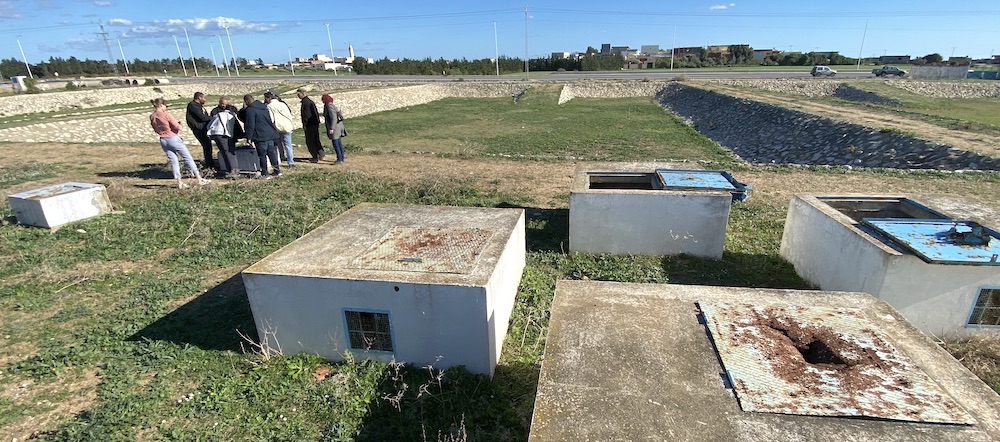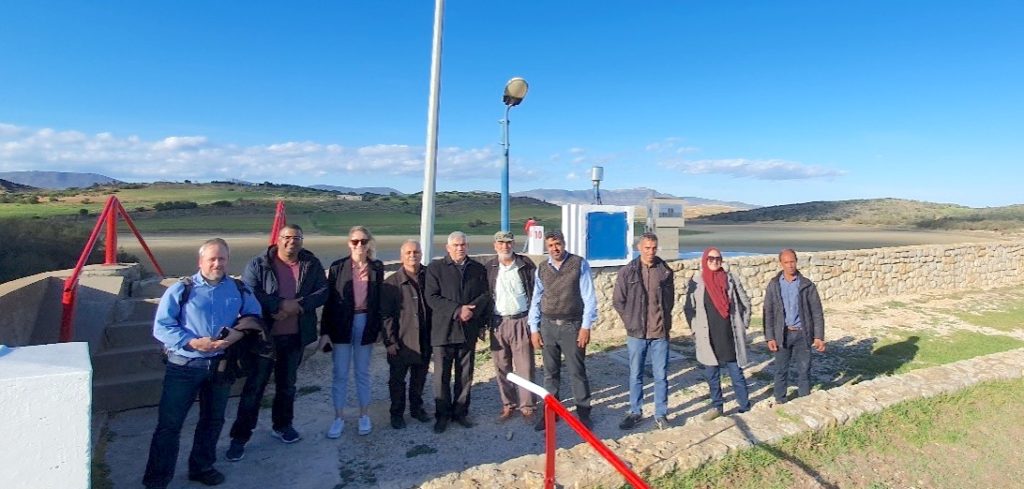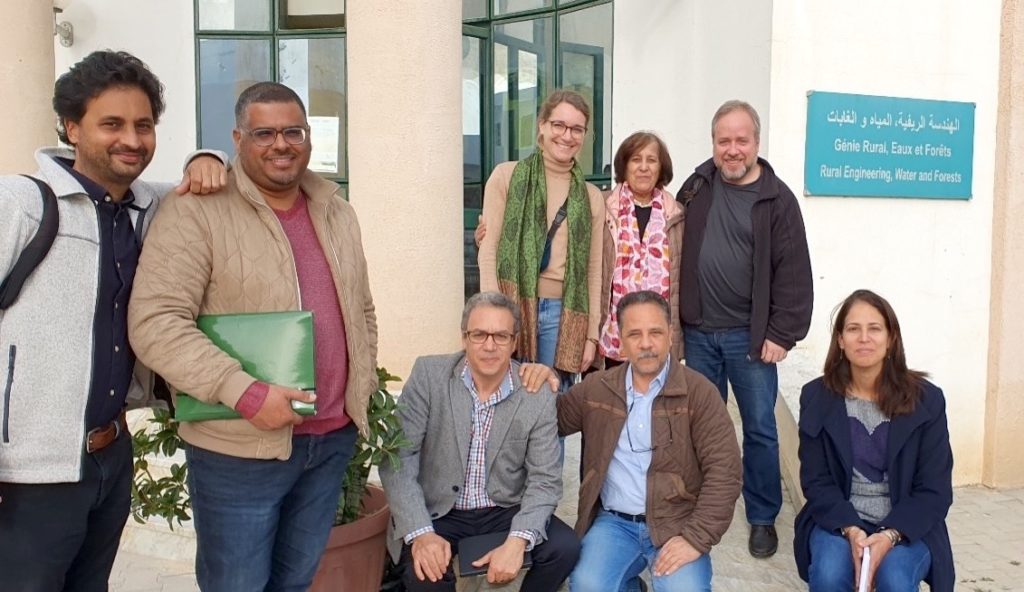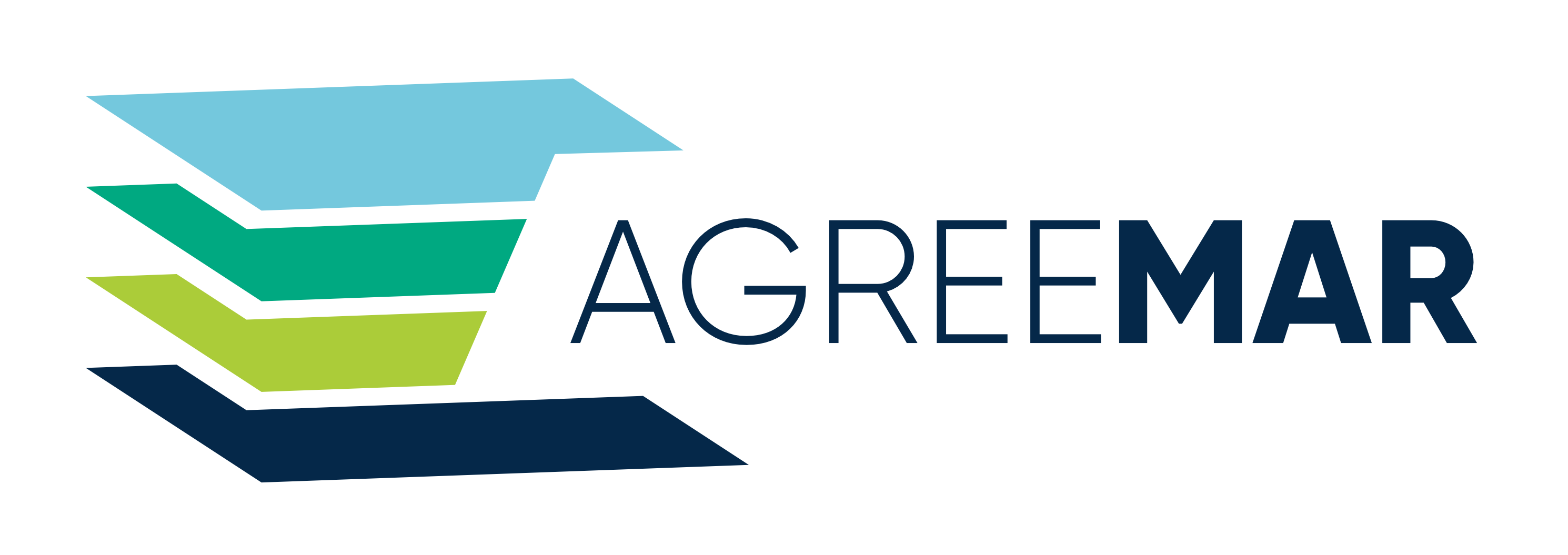After having successfully conducted needs assessment missions to Spain and Portugal in November, Tunisia was next on the list from 12-16 December 2022. The project team, consisting of INAT, TU Dresden and adelphi met with general (national), regional as well as local stakeholders and visited the demo sites in the Chiba basin on the Cap Bon Peninsula.
Approach for the assessment mission
Engaging with the stakeholders from the beginning of the project and assessing the scope and suitability of the pilot sites for the demonstration of the methodologies of the project is of core importance for the project team. The assessed needs will be used to further tailor project activities to actual ground reality and further increase the sustainability of the project results. In addition, the personal interaction with the stakeholders generated trust and ownership among them and encouraged for upcoming cooperation. The results will further be used for the development of a stakeholder engagement strategy and plan (D1.1 Initial dissemination and communication strategy and plan) that will be published at the end of January 2023.
The personal interactions focused on assessing the stakeholder’s roles, interests and demands related to the main project outcomes – feasibility maps, numerical groundwater models and MAR agreements. The questions inquired, for example, about existing MAR planning processes and related institutions, the conflicts and benefits they see in relation to MAR, and the viewed benefits of maps, models and agreements. The selection and weighting of the criteria for producing the feasibility maps were briefly introduced while informing on the next steps in this process (see D2.2 Participative methodology for criteria selection and weighting in MAR site feasibility mapping). Finally, the role and engagement in the further project activities was agreed upon and next steps for cooperation chalked out.
Main outcomes in Tunisia
Meetings were organized by INAT with the most important stakeholders for all three feasibility thematics. Namely these are CERTE and DGRE (intrinsic site suitability), ANPE, Ministry of Environment and CRDA (water availability), as well as BPEH, UTAP and GDA (water demand). The stakeholders informed the project team on the Tunisian approach for water resource management in general and the specific role and experience with MAR for sustainably managing groundwater resources. Site assessment of the existing MAR site in Korba and potential MAR system at the Chiba dam showed up the potential for grounding the project results. Stakeholder specific needs and engagement can be summarized as follows:
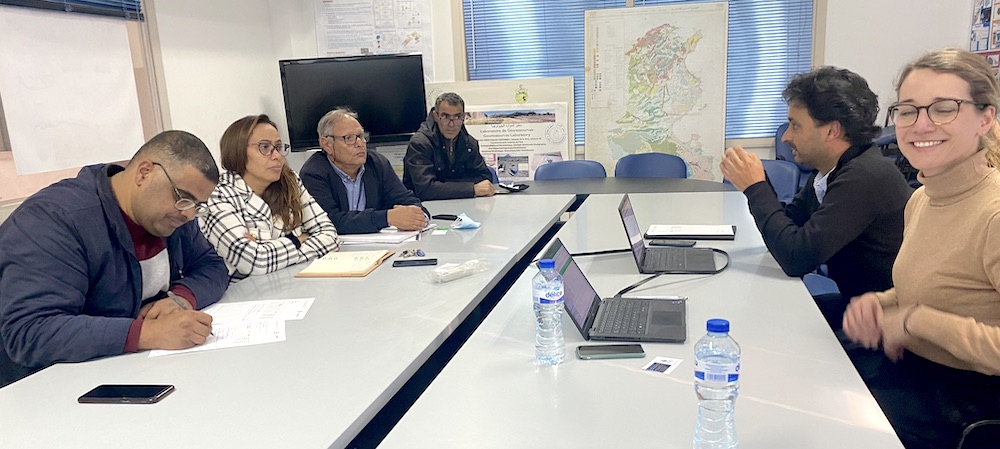
The research body CERTE (Water Research and Technologies Centre) is active in the field of MAR studies and is also linked to work in the Chiba basin. CERTE is interested in being involved in the development of the feasibility maps and agreements. They would also consider to transfer the approach to other regions in Tunisia. They would want to collaborate on the GW models as they have an extensive knowledge and data base dating back to first MAR experiments in 1973.
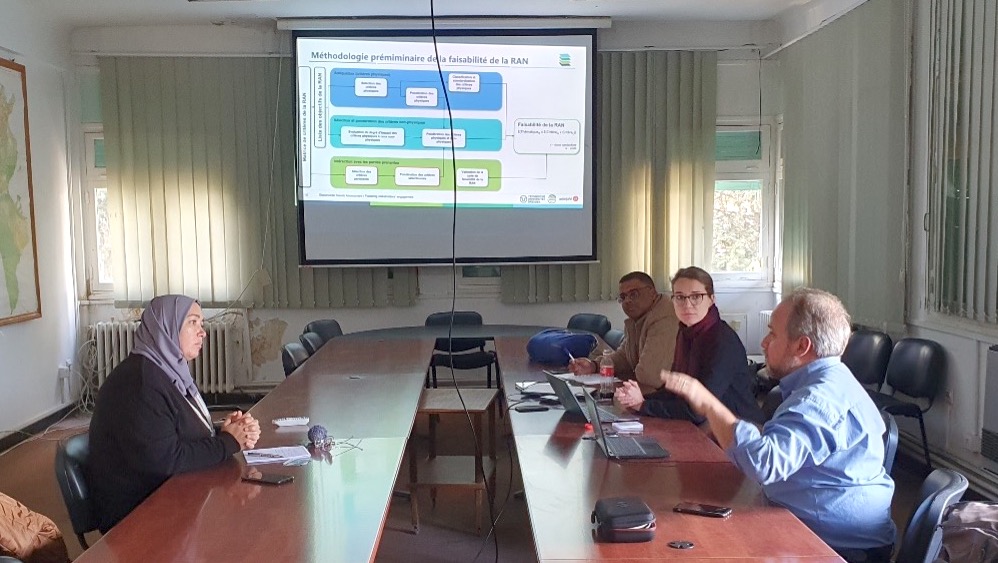
Similar to CERTE, DGRE (General Directorate for Water Resources), which is responsible for developing, implementing and operating MAR schemes, mentioned to be interested in transferring the experiences to other regions in Tunisia and would also want to be involved in all project activities and specifically collaborate on developing ground water models.
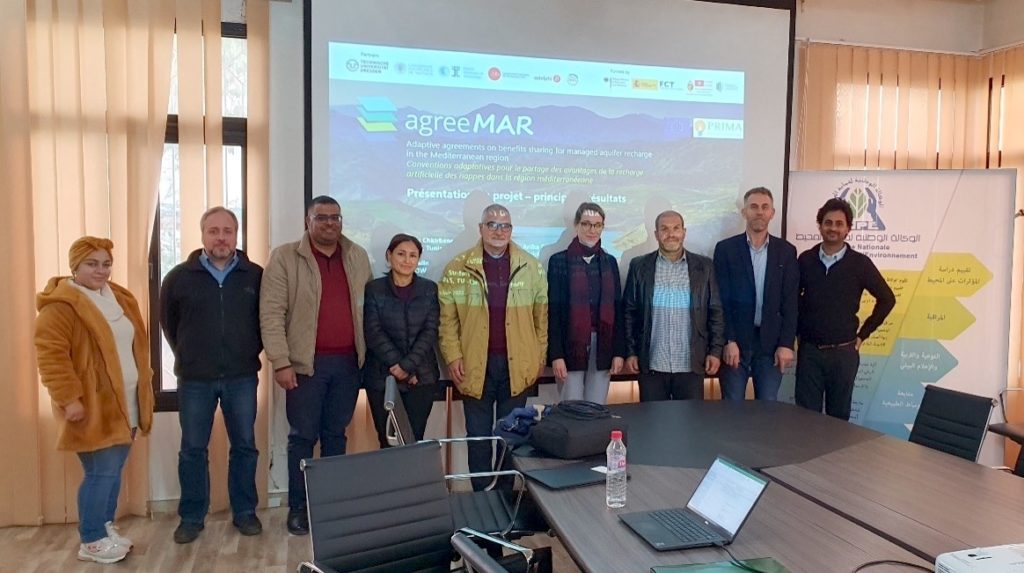
ANPE (National Environmental Agency) is the government body to suggest the permission of MAR schemes to the finally deciding agricultural ministry and while it sees a strong importance for recharging groundwater sources, it stresses to conduct an environmental impact assessment for each case based on water quality criteria. The agency committed to involve itself in the project activities and look into the long term exploitation of the results. Being concerned about overexploitation, evaporation losses in reservoirs and saline water intrusion, the Directorate of Environment and Life Quality at the Ministry of Environment welcomes the project activities which contribute to adapt to the increased water stress. It agreed to be involved in setting up the feasibility criteria.
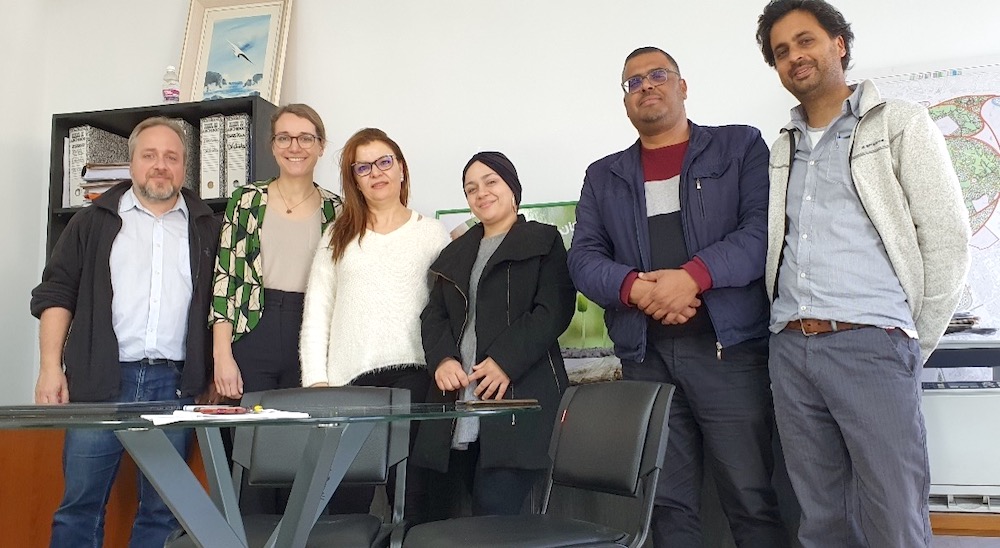
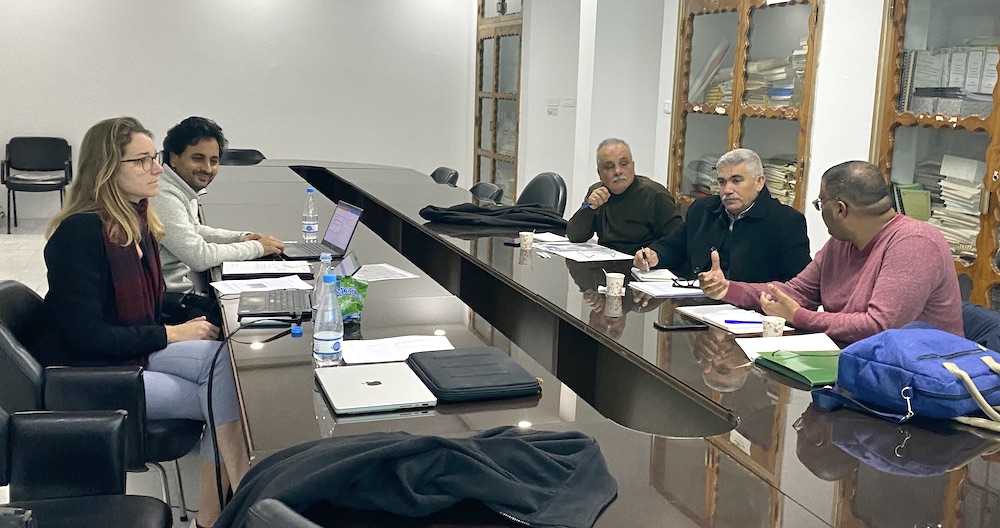
The regional CRDA (Regional Department for Agricultural Development) in Nabeul has a strong interest in valorising treated waste water of which currently only 25% is used, while it has the potential to substitute a big share of water which is currently transferred from the northern part of Tunisia. It would like to build more capacities in and collaborate on the development of models and be involved in the development of the regional agreements.
The BPEH (Office of Planning and Hydraulic Balances at the Ministry of Agriculture, Hydraulic Resources and Fisheries) stressed that the currently developed action plan 2050 looks into efficient usage of treated water and has identified recharge zones. Good coordination between the national level and the regional level would be required for the selected local demo site in Korba and bottom up social work needs to be done on the local level to receive the trust of the farmers. For both topics BPEH sees their role in collaboration.
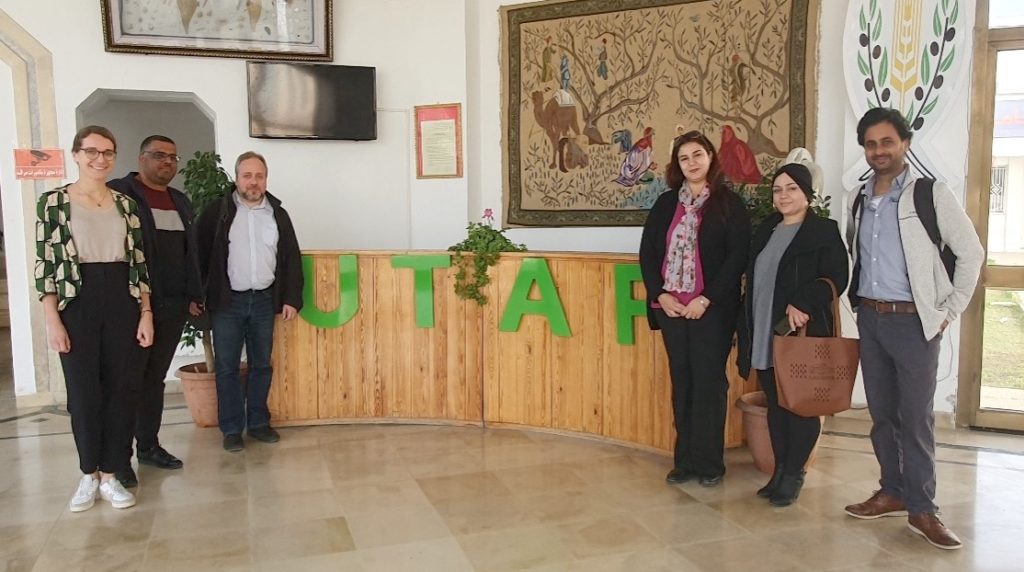
UTAP (Tunisian Union of Agriculture and Fisheries) shared a similar view of involving the local farmer groups in the decision processes as their interest lies in having a sustainable groundwater management. UTAP would collaborate and voice the farmers point of view in the elaboration of the agreements and link to the GDAs and local CTVs.
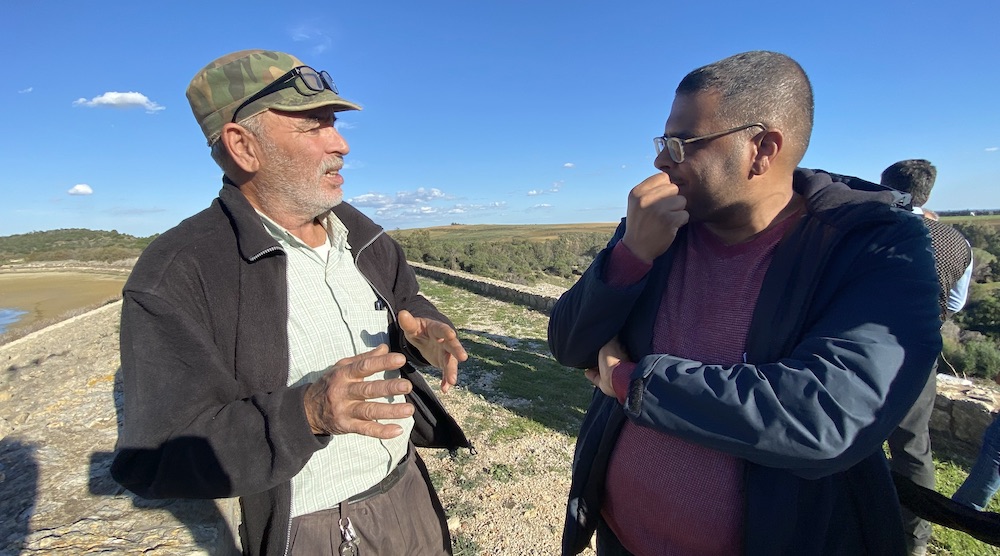
The GDA of Chiba (local farmers association) informed that GW recharge is already done by many local farmers in a suitable region and that they would be very interested in using the results of the maps and models to develop agreements for the operation of local MAR schemes. It was seen essential to involve ONAS and the WWTP operators to ensure adequate treated water quality for the effective usage of this secondary source. Interest was communicated by most of the stakeholders on setting up a steering committee for the project in Tunisia which will regularly be consulted on the project development and will further lead to involvement and collaboration on selected activities.
